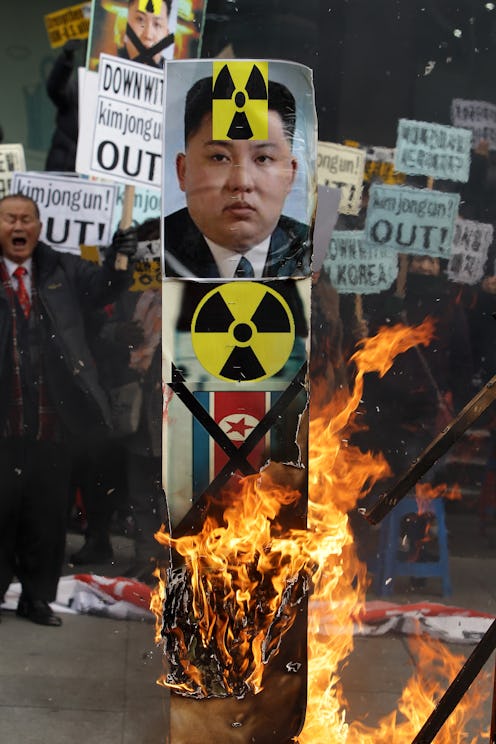News
UN: North Korea Crimes Similar To Nazi Germany's
Yes, Kim Jong-un is precisely as awful as you suspected: A new UN report states that North Korea's "crimes against humanity" are "strikingly similar" to the atrocities committed in Nazi Germany, and calls for Kim Jong-un and other North Korea leaders to be charged in international criminal court for their crimes against humanity. The revelatory UN report condemns the North Korean government for "unspeakable atrocities" committed inside its ultra-repressive society, including torture, public executions and the use of brutal labor camps.
The report isn't out yet, but the Associated Press reported on its contents Monday morning. The UN document reveals that the labor camps operate under the "three generations" rule, according to the AP, meaning two generations of the prisoner's offspring are sentenced a full life and death in captivity, as well. And for many, death quickly outpaces life, with starvation, torture and executions aplenty in secret prison facilities like the Yodok concentration camp, also known as Camp 15.
In total, the labor camps house up to roughly 200,000 North Koreans. Michael Kirby, the chairman of the UN's independent Commission of Inquiry, drew a specific parallel between the report's findings and the horrors of the Nazi regime in World War II:
At the end of the Second World War so many people said 'if only we had known ... if only we had known the wrongs that were done in the countries of the hostile forces.' Well, now the international community does know ... There will be no excusing of failure of action because we didn't know.
The report is expected to detail more of North Korea's staggering crimes against its own population, among them "an almost complete denial of the right to freedom of thought, conscience and religion;" the use of debilitating food scarcity "as a means of control over the population;" and security forces which "systematically employ violence and punishments that amount to gross human rights violations in order to create a climate of fear."
Limited insight and information is available from within the closed confines of North Korea, also known by its "Hermit Kingdom" moniker. It's even more difficult to assess the conditions inside the state's hidden camps — from which few people, it's believed, have ever escaped. One notable exception: Shin Dong-hyuk, who in January 2005 escaped from the Kaechan internment camp, bringing with him one of the most vivid and affecting stories of brutality and survival yet known about the thousands who toil under the North Korea regime.
In light of the testimony from Dong-hyuk and others, the conclusion of the UN's report isn't especially surprising — nor is it likely intended to be. Rather, it serves to confirm in official terms what so many people, international observers and oppressed North Koreans alike, have known for so long.
Unless you're inclined to take North Korea's word for it: they've responded to the report, decrying it as based on "faked" material crafted by the United States, Japan and the European Union. (Hint: Don't take North Korea's word for it.)
